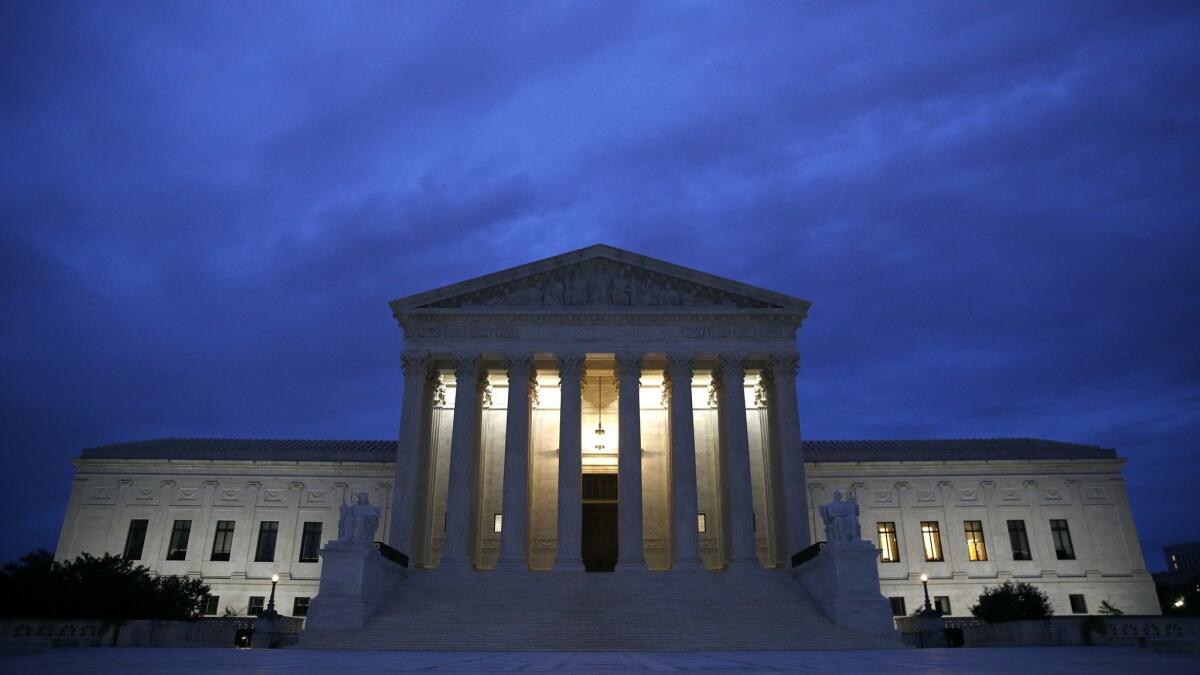Editorial: The Supreme Court rightly reins in asset forfeiture

- Share via
The Supreme Court this week struck a blow against one of the most insidious practices of the American criminal justice system: the unfair confiscation of property from people convicted — or even merely suspected — of committing a crime. So-called civil asset forfeiture has been a cash cow for police departments even as it has disproportionately impoverished poor people and people of color.
The court unanimously held that seizures by state governments of property used in the commission of a crime are covered by the 8th Amendment’s ban on “excessive fines” for criminal conduct. It is just the latest of many protections in the Bill of Rights that the court has held to be applicable not just to the federal government but to the states as well because they are “incorporated” by the 14th Amendment.
In this week’s case, the court sided with Tyson Timbs, an Indiana man whose $42,000 Land Rover SUV was seized in a civil forfeiture action after he pleaded guilty to selling $225 worth of heroin to undercover police officers. The state had argued that the vehicle was used to transport heroin. Timbs will now be able to argue in state court that the seizure of his vehicle was “grossly disproportionate” to the offense for which he was convicted.
Enter the Fray: First takes on the news of the minute »
In her majority opinion Wednesday, Justice Ruth Bader Ginsburg explained why it was important that the ban on excessive fines applied to the states. She noted that “the protection against excessive fines has been a constant shield throughout Anglo-American history: Exorbitant tolls undermine other constitutional liberties.”
Wednesday’s decision, however, is a limited one. It leaves open the question of whether and under what circumstances a forfeiture of assets sought by state officials is sufficiently “punitive” to trigger the ban on excessive fines.
State and federal law enforcement agencies can seize assets even when no criminal charge has been filed against their owner. The legal fiction is that the forfeiture is aimed not at the owner but at the property being used in the commission of a crime.
Ideally, this week’s decision will lead to more judicial oversight of civil asset forfeiture. But reform is also possible at the legislative level. In 2016, California enacted a law that required a criminal conviction for the state to benefit from the seizure of property valued at up to $40,000 as the result of a joint state-federal operation.
If property is to be seized by the government, it should be from individuals who have been convicted of a crime — and even then the punishment must be proportional. The goal must be justice, not a windfall for police coffers.
Follow the Opinion section on Twitter @latimesopinionand Facebook
More to Read
A cure for the common opinion
Get thought-provoking perspectives with our weekly newsletter.
You may occasionally receive promotional content from the Los Angeles Times.










